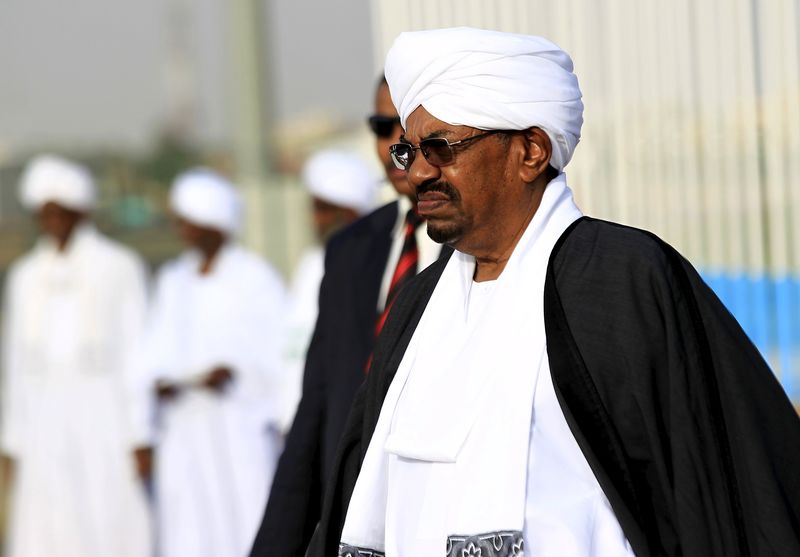BEIJING (Reuters) - Chinese President Xi Jinping welcomed Sudan's President Omar Hassan al-Bashir, an accused war criminal, as an "old friend" on Tuesday, as China's foreign ministry defended his invite to a military parade to mark the end of World War Two.
The Hague-based International Criminal Court (ICC) issued arrest warrants for Bashir in 2009 and 2010, accusing him of masterminding genocide and other atrocities in his campaign to crush a revolt in the western Darfur region.
Members of the ICC are obliged to act on arrest warrants, but China is not a member.
Meeting in Beijing's cavernous Great Hall of the People, Xi lauded the partnership between the two countries.
"You are an old friend of the Chinese people," Xi told Bashir, according to a pool report. "China and Sudan are like two brothers that are also good friends and partners. Mr Bashir coming to China shows our partnership is strong."
Bashir said he was very happy to have been invited the parade, which happens on Thursday and will see 12,000 troops marching through central Beijing.
Chinese state media has ramped up the propaganda ahead of the parade, with a particular focus on atrocities carried out by Japanese war criminals in China.
The parade has been largely snubbed by Western leaders, whose countries are generally confining representation to lower level officials or retired politicians.
Chinese Foreign Ministry spokeswoman Hua Chunying, asked about the irony of invited a leader wanted for war crimes when so many war crimes were committed during the conflict in Asia and Europe, said that was "overthinking" the issue.
"The people of Africa, including Sudan, made an important contribution in the victory in the World Anti-Fascist War. China's invite to President Bashir to the commemoration activities is reasonable and fair. While he is in China we will give him the treatment he should get," Hua told reporters.
As China is not a member of the ICC relevant issues will be handled "on the basis of the basic principles of international law", she added, without elaborating.
Bashir, who rejects the court's authority, has managed to travel within Africa and the Middle East.
In June, he was forced to flee South Africa, however, after a court ruled he should be banned from leaving pending the outcome of a hearing on his possible arrest.
Bashir, who has ruled Sudan since a 1989 Islamist and army-backed coup, has not travelled outside the Middle East or Africa since 2011, when he also visited China.

(This version of the story corrects spelling of minister's name in paragraph nine)